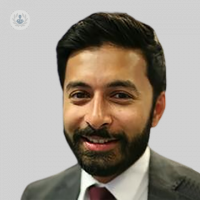Glaucoma surgery: Restoring vision and preventing progression
Autore:

Understanding glaucoma and its progression
Glaucoma is primarily caused by increased pressure within the eye, which damages the optic nerve—the crucial link between the eye and the brain. This damage can lead to gradual vision loss, starting with peripheral vision and potentially progressing to blindness if not managed effectively.
When will surgery be considered?
In many cases, glaucoma can be managed with medications (eye drops) or laser treatments to reduce intraocular pressure. However, if these treatments are ineffective or if the condition is advancing despite treatment, surgery may be recommended. The goal of surgery is to lower the intraocular pressure and thereby prevent further damage to the optic nerve.
What are the different types of glaucoma surgery?
There are several types of glaucoma surgery, each aimed at enhancing the drainage of fluid from the eye. Trabeculectomy is the most common procedure, where a small drainage hole is created in the sclera (the eye's white part) to facilitate the outflow of fluid, thereby reducing intraocular pressure. Another approach is tube shunt surgery, involving the implantation of a silicone or plastic tube to redirect aqueous humour to an external reservoir, effectively lowering pressure inside the eye.
What to expect before, during, and after surgery
Before surgery, your ophthalmologist will conduct a thorough evaluation of your eyes and discuss the procedure in detail, addressing any questions or concerns you may have. During surgery, you will be given local anaesthesia to ensure you are comfortable throughout the procedure. The surgery itself typically lasts around 30 to 60 minutes, depending on the type and complexity.
After surgery, you may experience some discomfort, which can usually be managed with medication. It is important to follow your doctor's instructions regarding post-operative care, including the use of eye drops and attending follow-up appointments. Most patients can resume normal activities within a few days to weeks after surgery, depending on the type of procedure performed.
What are the benefits and risks of glaucoma surgery?
The primary benefit of glaucoma surgery is its potential to halt the progression of vision loss by lowering intraocular pressure. However, like any surgical procedure, there are risks involved, such as infection, bleeding, or changes in vision. Your ophthalmologist will discuss these risks with you in detail before surgery and take steps to minimise them.


